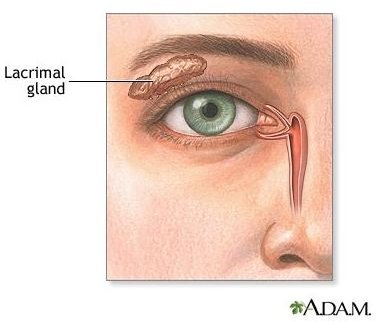Natural Relief for Severe Dry Eyes: How to Prevent and Treat Dry Eye Symptoms
Tears
Tears are more than just water. They are a mixture of water, electrolytes, proteins, fatty oils and bacteria-fighting substances. The eyes depend on these components, which are secreted by glands around the eyes, to keep them moist, lubricated and resistant to infection.
Symptoms
When a person does not produce enough tears or produces poor quality tears, she may experience redness, itching, pain, sensitivity to light, blurry vision and a gritty sensation in the eyes. Ironically, when some people suffer with severe dry eyes, they will have an excess of tears. This is a response from the body trying to correct the dryness, but unfortunately these tears are mostly made of water. They can help get rid debris from the eyes, but they cannot properly lubricate the surface of the eyes.
Risk Factors
Both males and females, at any age, can be affected by dry eyes. However, individuals over the age of 50 are at a higher risk because the production of tears tends to diminish. Also, the problem appears to be more common in women, especially after having gone through menopause, which is believed to be due to hormonal changes.
Causes
The following are possible causes of dry eyes:
Environmental factors, including the sun, dry air, high altitudes, wind, pollution and smoking.
Intense visual concentration, including reading, driving and staring at a computer for long periods of time, can decrease blinking and increase tear evaporation.
An imbalance in the tear-flow system.
Damage to the tear glands from problems like inflammation or radiation.
Eyelid problems such as ectropion (out-turning of the eyelids) and entropion (in-turning of the eyelids) can impair blinking motion.
Side effects from certain medications, such as birth control pills, antihistamines, decongestants, some anti-hypertensive drugs, diuretics, ibuprofen, appetite suppressants and some antidepressants.
Medical conditions that affect tear production, such as vitamin A deficiency, diabetes, lupus, rheumatoid arthritis and scleroderma.
Refractive eye surgeries. Surgeries like LASIK (laser-assisted in-situ keratomileusis) can cause a decrease in tear production. Symptoms are usually temporary from these procedures.
Natural Remedies
Place a warm, wet washcloth over your closed eyelids for five to 10 minutes several times a day. This will help open clogged oil glands.
Wash your hands, put some mild soap (like baby shampoo) on your fingertips, close your eyes, gently massage near the base of your eyelashes then rinse the soap completely away. Do this once a day.
Try Similasan homeopathic eye drops (active ingredients: Belladonna, Euphrasia and Mercurius sublimatus). These drops are known throughout Europe and are well-tolerated.
Treating and Preventing
The following can help provide relief and prevent dry eyes:
If you are not getting enough vitamin A in your diet, eat more sweet potatoes, carrots, dried apricots, cantaloupe, lettuce and dark leafy greens.
Omega-3 fatty acids are believed to reduce eye inflammation and increase the viscosity of oils in the eyes. You can take supplements, but it is best to include foods high in omega-3 in your diet. Foods include cold water fish such as salmon, mackerel and tuna, walnuts, flaxseed and eggs from chickens that are fed with feed rich in omega-3. If you wish to take supplements, talk to your doctor first if you are pregnant or breastfeeding, have a medical condition (especially a bleeding disorder) or are taking medications.
Help reduce chronic inflammation by eating more whole grains and less refined carbohydrates and processed foods.
Drink eight to ten glasses of water a day to prevent dehydration, which can draw fluid from the eyes.
Blink often and take frequent breaks when doing prolonged activities requiring visual attention such as reading or looking at your computer screen.
Avoid rubbing your eyes, which can remove moisture.
Do not smoke and avoid smoky areas.
Avoid air blowing in your eyes, such as from blow dryers, fans, air conditioners and car heaters.
Use a humidifier in your home, especially when running heat.
Protect your eyes from the sun and wind by wearing sunglasses that fit close to your face.
Avoid wearing contact lenses. If you do wear them, buy lenses that are specifically designed for dry eyes, keep them very clean and don’t wear them all the time.
Get a good night’s sleep to rest and refresh your eyes.
Crying can worsen the condition. Although crying produces tears, tears brought on by emotions are different from those for lubrication and wash away the oils that prevent dry eyes.
Complications
Complications are uncommon, but frequent eye infections, scarring on the surface of the eye and vision problems can occur.
If you do not find relief for severe dry eyes after using the above natural remedies, consult your health care provider.
References
Medicine Net: Dry Eyes - https://www.medicinenet.com/dry_eyes/article.htm
Mayo Clinic: Dry Eyes - https://www.mayoclinic.com/health/dry-eyes/DS00463
Joan Wilen and Lydia Wilen, Bottom Line’s Healing Remedies (2006)
Image courtesy of the National Library of Medicine (NLM)
Disclaimer
Please read this disclaimer regarding the information contained within this article.
